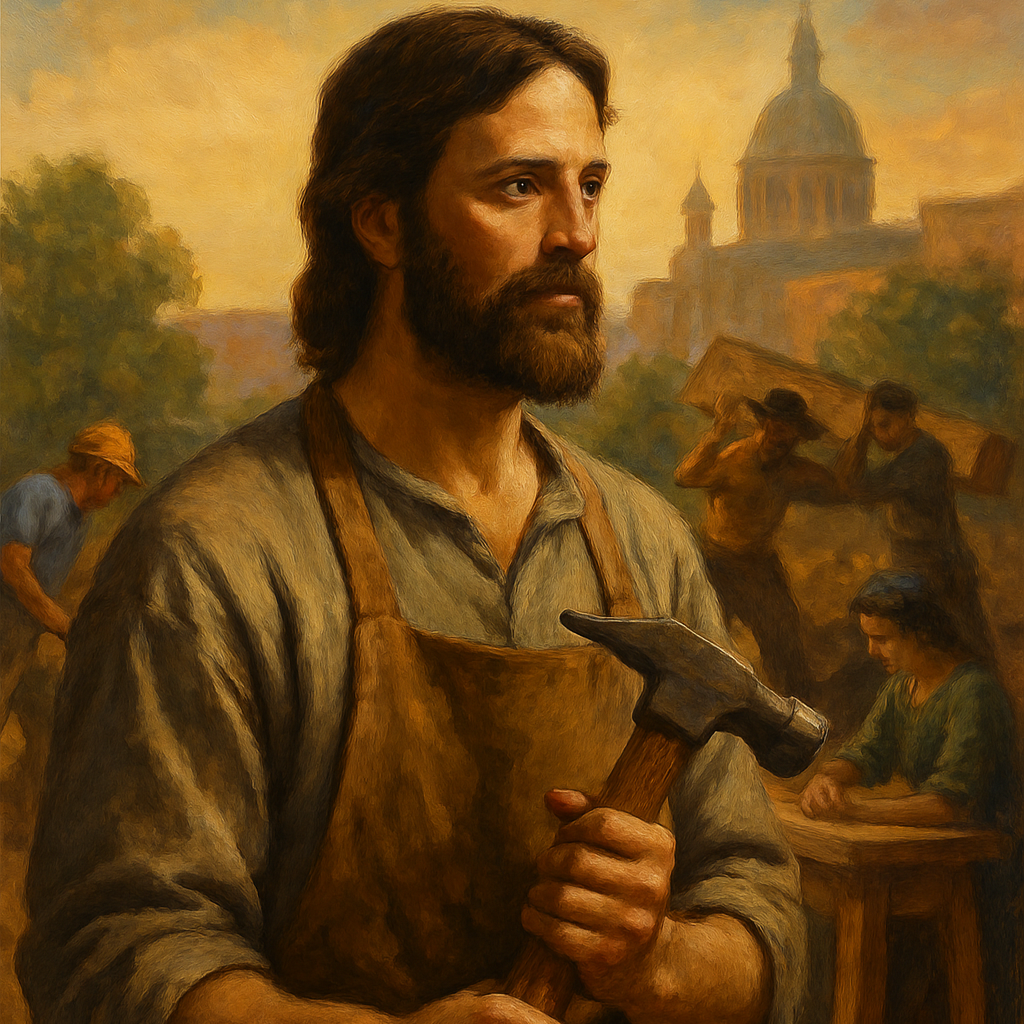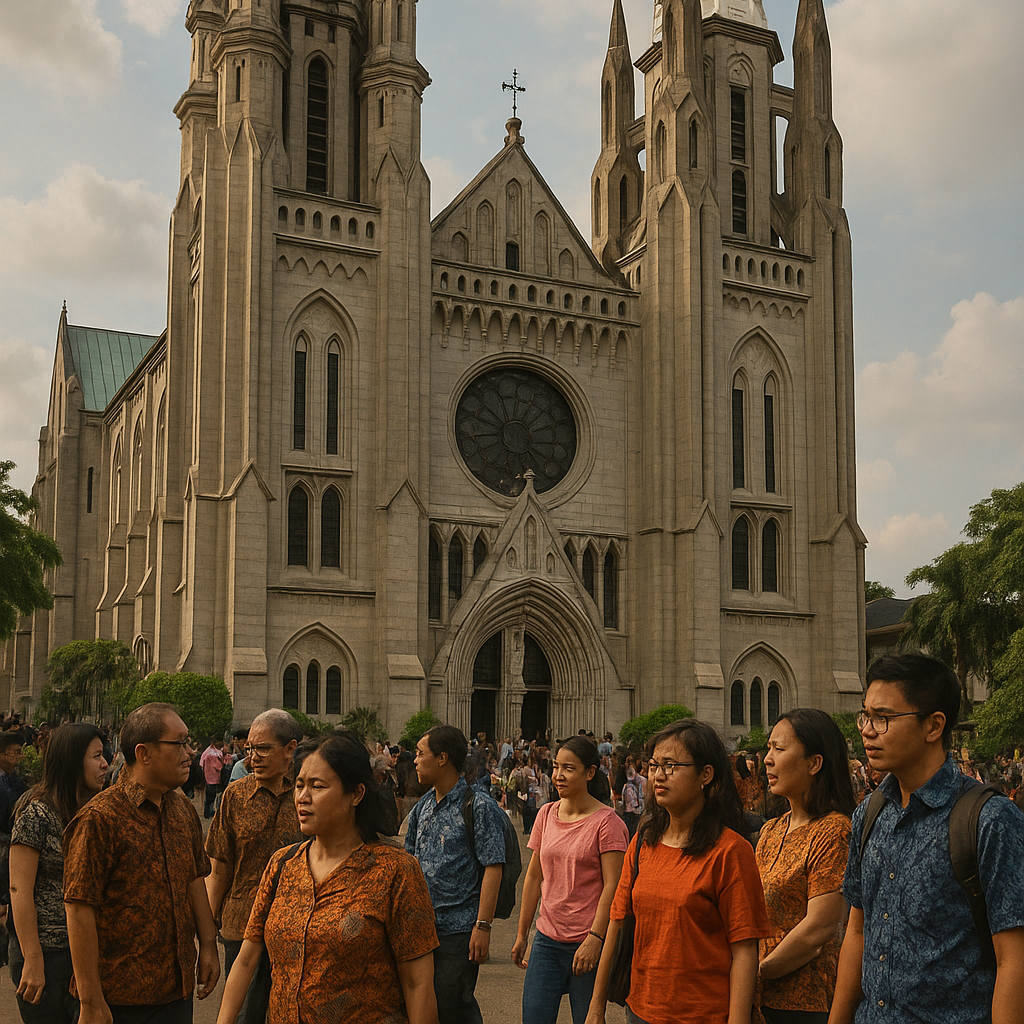The Genealogy of Adam to Noah: The Meaning of Family, Values, and Spirituality in Indonesia
theolingua.id – Genesis 5 in the Bible records the genealogy of Adam’s descendants, from Adam to Noah, which illustrates the continuity of generations and the close relationship between humans and God. This shows that each individual has a role in passing on the values of life that have been passed down since the beginning of creation.
In Indonesian society, this concept is reflected in the importance of lineage and the noble values passed down by parents to their children.
In addition, family harmony and spirituality are also important foundations in the social life of Indonesian society. The culture of mutual cooperation, respect for ancestors, and strong religious practices reflect the close relationship between generations in upholding moral heritage and faith. This article will interpret Genesis 5 with a contextual approach to social, cultural, and religious life in Indonesia today.
Family as the Core of Society
Genesis 5 shows how the human genealogy is passed down from one generation to the next, emphasising the continuity of life and the importance of family relationships. In Indonesian culture, the family is the main foundation of society, functioning not only as a social unit but also as the main vehicle for instilling life values.
The principles of mutual cooperation, respect for parents, and maintaining family relationships are important aspects of daily life, reflecting how Indonesian society places family as the main pillar in building individual character.
Like Adam, who passed on his divine values to his descendants, parents in Indonesia also try to pass on moral, cultural, and religious teachings to their children. Family education does not only focus on academic aspects but also on character building and spirituality.
This process occurs through various traditions, advice, and real examples given by parents to their children. Thus, the continuity of noble values can be maintained, making the next generation better prepared to face the challenges of life with a strong moral foundation.
The Meaning of Longevity and Well-being
In Genesis 5, many figures are said to have lived long lives, such as Methuselah, who lived to be 969 years old. Although the age of modern humans is not that long, the philosophical value that can be taken is how a long life should be filled with virtue, positive contributions, and dedication to moral and spiritual values.
A meaningful life is not only measured by how long a person lives, but also by how much impact he or she has on others and the environment.
In Indonesian culture, longevity is often associated with a blessed life, good health, and harmonious social relationships. Indonesians believe that longevity is the result of a healthy lifestyle, a balance between the physical and spiritual, and strong social support from family and community.
Traditions such as offering prayers for safety and longevity at birthday celebrations or traditional ceremonies show how important it is to hope for a life that is not only long but also full of blessings and meaning.
The Spiritual Role in Everyday Life
Enoch is one of the characters in Genesis 5 who has the distinction of ‘living with God’ and then being directly appointed by God. This story shows how important spiritual relationships are in human life, where obedience and piety can bring a person closer to God.
In many religious traditions in Indonesia, the story of Enoch is often used as an inspiration for the faithful to always maintain the purity of their hearts and behaviour in order to be in harmony with divine values.
In the context of Indonesia, which has a diversity of religions, living in harmony with God’s teachings is highly valued. Many Indonesians emphasise the importance of worship, prayer and charity as a way of drawing closer to God.
In addition, religious values are also manifested in social life, such as the attitude of helping each other, mutual cooperation, and caring for others. This shows that spiritual life is not only about an individual’s relationship with God, but also how a person interacts with the surrounding community with love and kindness.
Inheritance of Values for the Next Generation
Each generation in Genesis 5 has an important role in continuing the lineage and maintaining the inherited values of faith. Lamech, for example, declared that his son, Noah, would bring comfort and hope in a world that was increasingly experiencing moral decline.
This story illustrates how parents play a role in shaping and guiding their children to stay on the right path and bring positive change to their community.
In Indonesia, this concept is reflected in character education that is passed down from generation to generation. Parents and community leaders play a role in teaching local wisdom, culture, and moral values to their children as provisions for the future. In Indonesia, this concept is reflected in character education that is passed down from generation to generation.
Parents and community leaders play a role in teaching their children local wisdom, culture, and moral values as provisions for life. This tradition is instilled not only through formal education, but also through everyday life, such as family advice, traditional ceremonies, and social practices that strengthen a sense of responsibility and care for others.
Hope in Every Generation
Noah, as the last generation in the genealogy of Genesis 5, became an important figure in the history of mankind. He was seen as a bringer of change and hope for a world that had experienced moral decline.
His presence marked the transition to a new era, where courage and determination in carrying out God’s commandments became the main key in facing the challenges of the times. In a spiritual context, the story of Noah teaches that obedience and patience can bring salvation and renewal to mankind.
In Indonesian society, the hope for the younger generation to become wise and responsible leaders is also a top priority. Modern challenges demand that the next generation have integrity, intelligence, and care for others.
Education and character building are part of the effort to shape a better generation, by instilling strong moral and religious values. By learning from history, the younger generation can be better prepared to face change and make a positive contribution to society.
Conclusion
Genesis 5 is not just a list of descendants, but also contains a profound message about the continuity of values, the relationship between humans and God, and the importance of family in life. The genealogy recorded in this chapter emphasises that human life does not only focus on the existence of the individual, but also on the continuity of values and spiritual heritage passed on to future generations.
By understanding this pattern of continuity, we can see how each individual has a role in maintaining balance and harmony in community life.
In the Indonesian context, this teaching remains relevant in building a society that is harmonious, religious, and has a sense of responsibility towards the future. Social life in Indonesia is still largely influenced by family values, where relationships between family members are the main pillars in shaping individual character.
In addition, this teaching also emphasises the importance of spirituality in life, which is reflected in various religious traditions and customs that have been passed down from generation to generation. By understanding and applying these values, we can live a more meaningful life and make a positive contribution to the environment.





